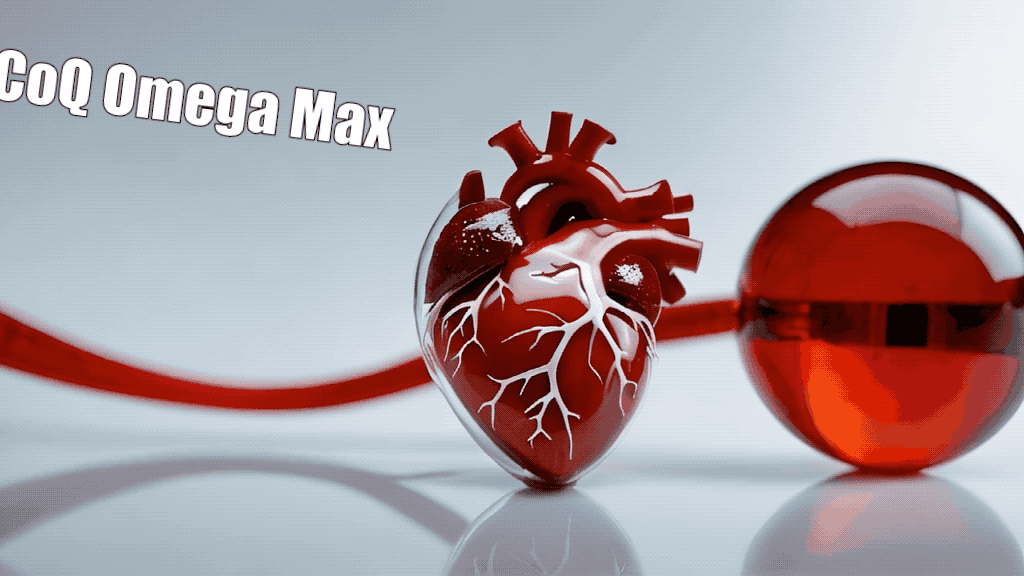Optimizing our heart health is a multifaceted endeavor that requires attention to our dietary intake, exercise habits, and overall lifestyle.
Among the nutritional components pivotal for maintaining a healthy heart, coenzyme Q10 (CoQ10) and omega-3 fatty acids stand out for their respective roles in cellular energy production and anti-inflammatory effects.
Nerd Alert!
My friend's niece reads some of my blog posts. That would be flattery if it weren't that she is ten years old! I am inspiring future women?! Anyhow, she asked what a coenzyme is. Here is what I told her:
She acknowledged with passive enthusiasm and ended the sentence with "Untie Olivia, I am 10, not mentally impaired". My friend is in for a treat when she enters the teen time 😈 😅
Our bodies naturally produce CoQ10 to help convert the food we eat into energy, making it vital for the health of all our cells, particularly within the high-energy demand of our heart muscle.
Additionally, omega-3 fatty acids have been widely researched and are known for their benefits in reducing inflammation, lowering triglyceride levels, and improving blood pressure, all of which contribute to cardiovascular wellness.

Ensuring our diet is rich in these components supports the underlying mechanisms that keep our heart functioning optimally.
To complement these heart-healthy nutrients, electrolytes also play a crucial role.
| CoQ Omega Max | Supplement Facts |
|---|---|
| Serving Size: | 1 Softgel |
| Servings Per Container: | 60 |
| Amount Per Serving | |
| Calories | 5 |
| Total Fat | 0.5g (1%† Daily Value) |
| Fish Oil Concentrate | 500mg |
| - Total Omega-3 Fatty Acids | 348mg |
| -- EPA (Eicosapentaenoic acid) | 230mg |
| -- DHA (Docosahexaenoic acid) | 100mg |
| Coenzyme Q10 (as ubiquinone) | 100mg |
| Other Ingredients: | |
| Softgel (bovine gelatin,glycerin, | |
| yellow beeswax, and mixed natural tocopherols. | |
| Contains: | Fish (anchovy and/or sardine and/or mackerel). |
They are essential minerals that conduct electricity when dissolved in water, which is necessary for a range of bodily processes including muscle contractions and heartbeat regulation.
A balance of electrolytes is important for maintaining proper hydration and blood chemistry, factors that can directly influence heart health.
Maintaining an equilibrium of electrolytes can support heart function and overall circulatory system health.
Understanding Heart Health and Disease
In our exploration of heart health, we focus on two pivotal elements: the roles of Coenzyme Q10 (CoQ10) and Omega-3 fatty acids in cardiovascular health, and the crucial influence of electrolytes on cardiac function. By "WE", I mean Dr. Emi and I but in actuality I am not a doctor so... there's that! 😅
Role of CoQ10 and Omega-3 in Cardiovascular Health
Coenzyme Q10, or CoQ10, is essential in our bodies for the production of ATP, the energy currency within our cells, especially rich in organs like the heart.
Research discussed in the National Center for Biotechnology Information underlines CoQ10's antioxidant properties, which help mitigate oxidative stress—a key contributor to heart disease and atherosclerosis.

Moreover, CoQ10 is known to support heart function, potentially reducing adverse cardiac events and lowering high blood pressure, setting it as a cornerstone for heart health.
Omega-3 fatty acids, recognized for their anti-inflammatory effects, play a role in reducing cardiovascular risk.
Found in fatty fish and supplements, these essential nutrients have been linked to a lower incidence of heart attacks, strokes, and death from heart-related causes, as well as the improvement of endothelial function, which is crucial for preventing the buildup of plaque in arteries—directly relating to coronary heart disease.
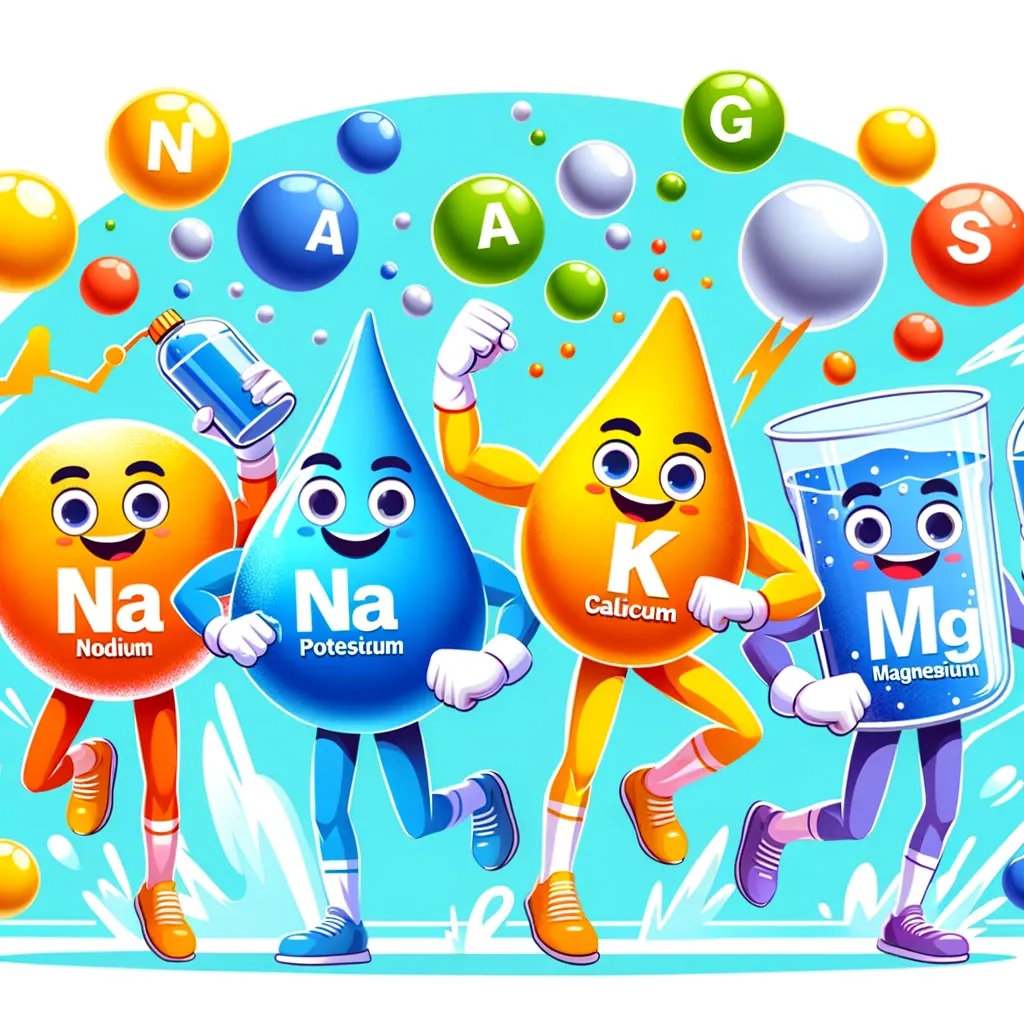
Impact of Electrolytes on Heart Function
Our heart's ability to contract and maintain a rhythm is governed by electrolytes—minerals such as potassium, sodium, and magnesium.
An imbalance in these can lead to arrhythmias or irregular heartbeats, directly affecting the risk of experiencing cardiac events. The regulation of blood pressure and the prevention of heart failure also hinge on a balance of these critical ions.
Maintaining the right electrolyte balance is not only crucial for normal heart function but also for reducing overall heart disease risk.
Synergistic Effects of Nutrients on Heart Function
We often overlook the nuanced interplay between different nutrients that can collectively enhance heart health. This section explores the combined effects of specific nutrients and the science behind their benefits for the heart.

Antioxidant Properties and Oxidative Stress Reduction
Antioxidants are vital in battling the oxidative stress that can damage cells including those in the heart and blood vessels.
Coenzyme Q10 (CoQ10), a nutrient found in CoQ Omega Max, is a potent antioxidant that we know helps protect against cellular damage.
Oxidative stress is a significant contributor to heart attacks and strokes, as it can lead to inflammation, endothelial dysfunction, and a higher concentration of low-density lipoprotein (LDL) cholesterol - all of which are risk factors for these conditions.
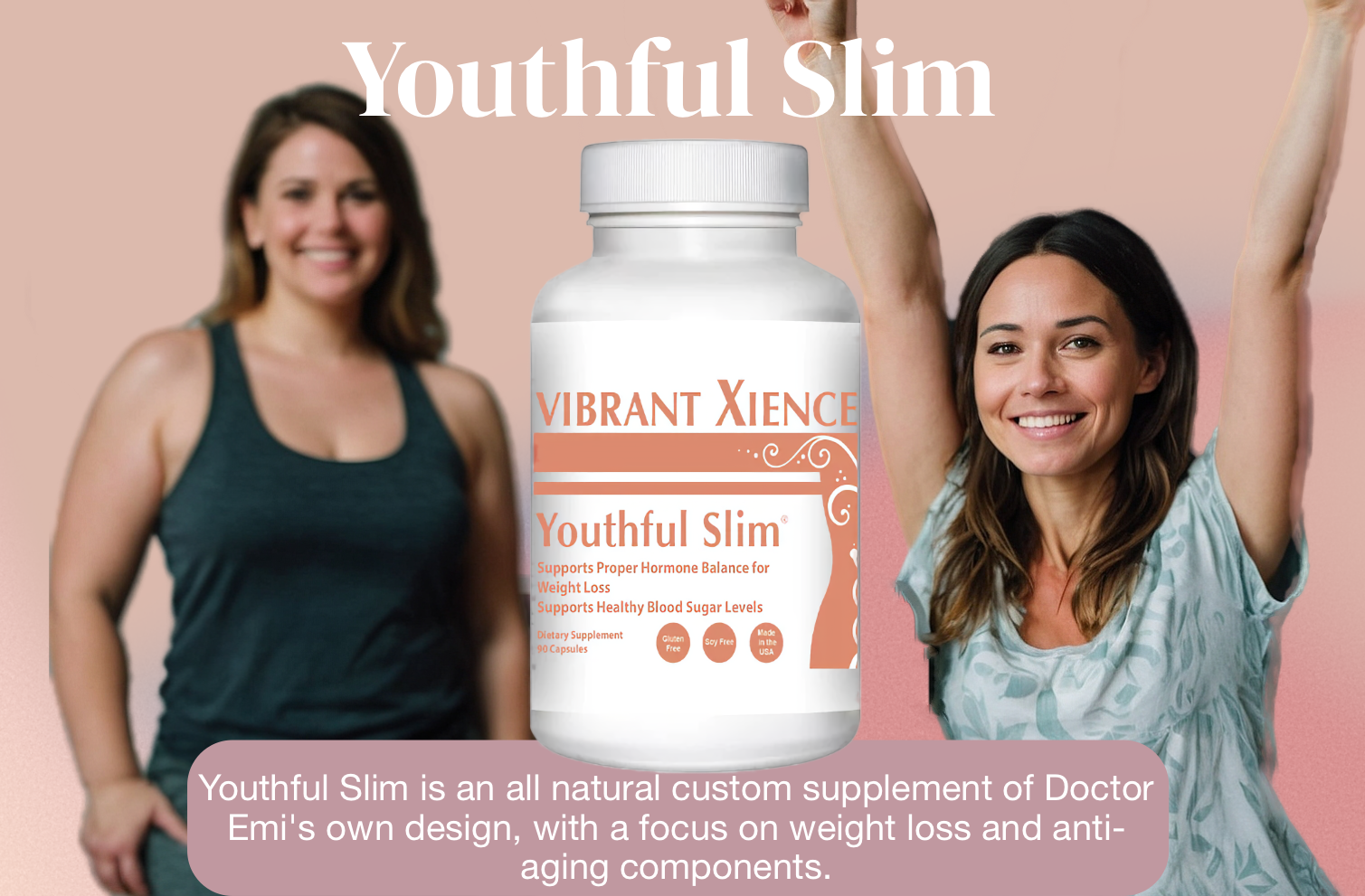
Enhancing Blood Flow and Reducing Blood Pressure
Electrolytes play an essential role in our body's metabolic processes, including the regulation of heartbeat and muscle function.
A balanced electrolyte composition is necessary for optimal blood flow and blood pressure management.
By ensuring proper absorption and utilization of these electrolytes, we support endothelial function, which is critical for reducing the risk of clotting and cardiovascular events.
Additionally, by managing triglyceride levels through nutrient synergy, we help maintain healthy blood flow and reduce the risk of hypertension, further protecting us against heart-related conditions.
Evaluating the Effectiveness of CoQ Omega Max
Coenzyme Q10 (CoQ10) and omega-3 fatty acids are key ingredients in CoQ Omega Max. While CoQ10 is involved in energy production within the cells, omega-3 fatty acids are known for their potential cardiovascular benefits.
It's important for us to assess the scientific evidence supporting these supplements. The FDA does not approve dietary supplements as it does for drugs; however, it monitors their safety and labeling.
Therefore, we should look for products that have been tested for purity and possess transparent ingredient information.
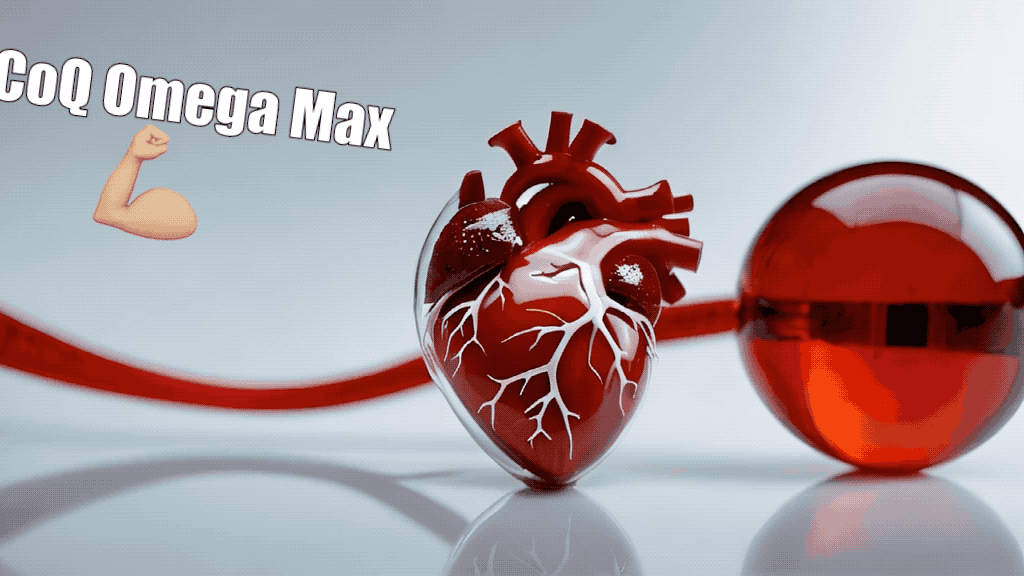
Understanding the Science Behind Electrolyte Supplements
Electrolyte supplements contain essential minerals such as sodium, potassium, and magnesium, which are vital for our body's hydration, nerve function, and muscle contraction.
When formulating these supplements, the inclusion of an appropriate balance of these minerals is essential to mirror our body's natural electrolyte composition.
Since these are not classified as drugs, the FDA's role in oversight is to ensure that they are properly classified as dietary supplements and that their manufacturers follow good manufacturing practices (GMP).
We rely on these guidelines to ensure that the electrolyte supplements we choose to incorporate into our diet are both safe and manufactured with consistency.
Clinical Research and Evidence
We understand that the interplay between CoQ10, omega-3 fatty acids, and electrolytes is pivotal in managing cardiovascular risk factors such as hypertension and diabetes, which can lead to a reduction in mortality rates.
Analyzing Randomized Controlled Trials and Studies
Randomized controlled trials (RCTs) are the gold standard in clinical research, as they minimize bias and provide the highest level of evidence.
Several RCTs have reported that CoQ10 supplementation can positively affect blood lipids and blood sugar levels, which are important parameters for individuals with T2D (Type 2 Diabetes).
- RCTs Examined:
- Benefit observed in blood lipids
- Improvement seen in blood sugar regulation
Omega-3s and CoQ10: Synergy in RCTs
- Reduction in triglycerides
- Possible impact on all-cause mortality

Overview of JAMA Meta-Analysis Findings
A comprehensive meta-analysis published in JAMA, evaluates the accumulated data from multiple studies to generalize the effects of interventions like CoQ10 and omega-3s on health outcomes.
We found that such analyses often reveal a nuanced picture; while some studies indicate a clear benefit in terms of reduced all-cause mortality, others show a moderate or no significant impact.
However, the data suggests that for people with specific conditions such as hypertension or diabetes, supplementing with these nutrients may lead to a decrease in cardiovascular risk and potentially, mortality.
- Meta-Analysis Highlights:
- Mixed findings on all-cause mortality
- Specific benefits for hypertension and diabetes
JAMA Findings on Nutrients: In-depth Analysis
- Cardiovascular risk reduction
- Inconclusive yet promising mortality data
Lifestyle and Dietary Recommendations
In our quest to optimize cardiovascular health, we must focus on both what we eat and how we live. Smart choices in our diet and lifestyle practices can significantly influence factors like hypertension, atherosclerosis, and diabetes, all of which affect heart health.
Incorporating Heart-Healthy Foods and Practices
We must prioritize the inclusion of foods rich in Omega-3 fatty acids which have been recognized for their role in reducing cardiovascular events in individuals with existing heart disease.
These nutrients not only help manage hypercholesterolemia but also play a role in overall metabolism improvement. Foods like fatty fish, flaxseeds, and walnuts are excellent sources.
On the physical activity front, we should aim for at least 150 minutes of moderate exercise per week as suggested by the American Heart Association.
Regular exercise helps maintain weight, manage blood sugar, and can reduce the risk of type 2 diabetes (T2D).
Understanding the Role of Sugar and Fat in Heart Disease
We need to understand that not all fats are created equal.
Saturated fat, mainly found in animal products, should be consumed in much lower quantities as it is linked to heightened risk of heart disease.
Instead, we can incorporate unsaturated fats such as olive oil and avocados into our meals.
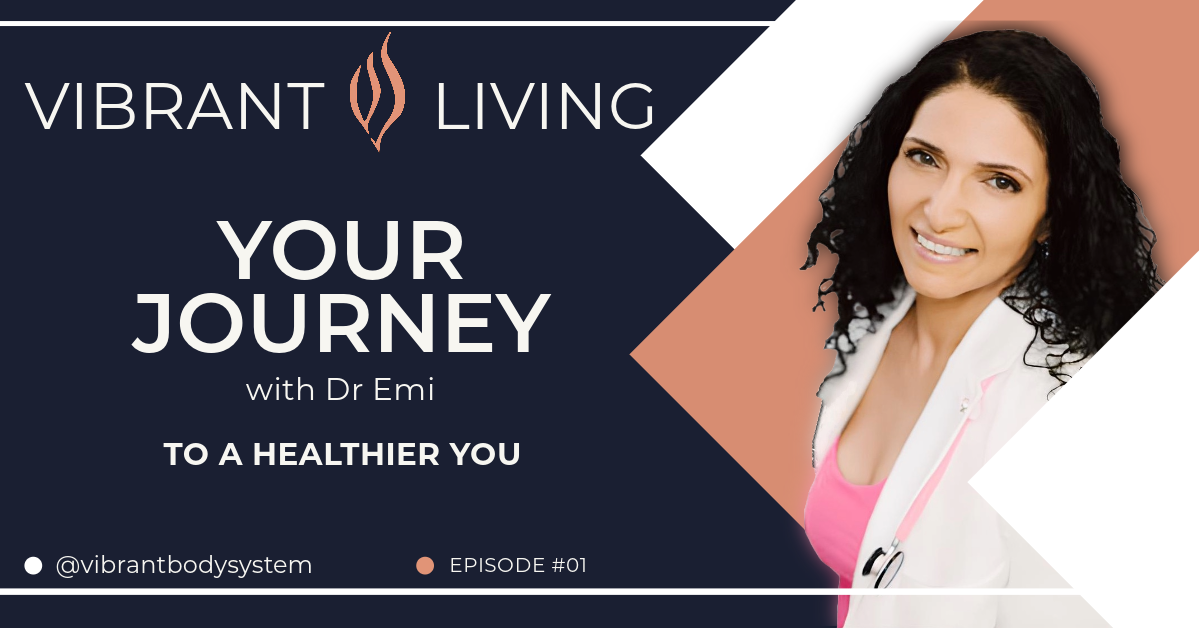
Regarding sugar, excessive intake is a direct ticket to heightened HbA1c levels. These levels reflect poorly controlled blood sugar and an increased risk of T2D.
Replacing sugar with natural sweeteners like stevia can be a wise step towards maintaining healthy blood sugar levels. This protects us against the progression of diabetes and its impact on cardiovascular health.
Observing and correcting our Standard American Diet (SAD) is critical. The SAD is high in sugars and saturated fats, and it can lead to ailments like hypertension and atherosclerosis.
Until Next, Stay Vibrant! Olivia.



